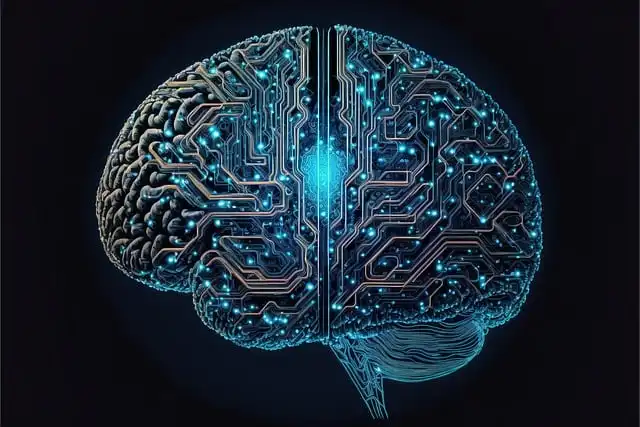Trump, AI & Ideology: Objectivity Concerns

Trump's AI action plan sparks debate over 'objectivity' and ideological bias in AI systems. Experts fear government imposing worldview on AI, impacting neutrality and global users. Contracts to Anthropic, Google, OpenAI, xAI.
” The suggestion that federal government agreements should be structured to ensure AI systems are ‘objective’ and ‘free from top-down ideological predisposition’ triggers the concern: objective according to whom?” says Becca Branum at the Facility for Freedom & Innovation, a public policy non-profit in Washington DC.
AI Objectivity: Whose Standard?
In July 2025, the US Department of Defense’s Chief Digital and Artificial Office introduced it had actually granted new contracts worth as much as $200 million each to Anthropic, Google, OpenAI and Elon Musk’s xAI. The inclusion of xAI was remarkable provided Musk’s recent function leading President Trump’s DOGE job pressure, which has actually terminated countless civil servant– not to mention xAI’s chatbot Grok just recently making headings for sharing racist and antisemitic sights while describing itself as “MechaHitler”. None of the business supplied reactions when spoken to by New Scientist, but a few referred to their execs’ general statements praising Trump’s AI activity strategy.
President Donald Trump wishes to ensure the US government just provides government agreements to expert system designers whose systems are “free from ideological prejudice”. The new requirements can enable his management to impose its own worldview on tech companies’ AI designs– and companies might encounter substantial challenges and risks in attempting to customize their versions to comply.
AI designs could try to approximate political neutrality if their developers share even more information publicly regarding each version’s prejudices, or build a collection of “intentionally diverse designs with varying ideological leanings”, says Jillian Fisher at the University of Washington. However “as of today, developing an absolutely politically neutral AI model may be difficult offered the naturally subjective nature of nonpartisanship and the lots of human selections required to develop these systems”, she states.
Challenges of Neutral AI
AI programmers can still “steer the model to write really particular things about certain issues” by refining AI responses to particular customer prompts, yet that won’t thoroughly transform a version’s default stance and implicit predispositions, says Röttger. This method could additionally encounter basic AI training objectives, such as prioritising reliability, he says.
United States technology firms might additionally potentially alienate many of their customers worldwide if they attempt to align their business AI versions with the Trump administration’s worldview. “I’m interested to see just how this will pan out if the United States now attempts to impose a specific ideology on a design with an international userbase,” claims Röttger.
Global Impact of US Ideology
Currently AI programmers holding or seeking federal contracts face the prospect of having to follow the Trump administration’s promote AI models without “ideological predisposition”. Amazon, Google and Microsoft have actually held federal agreements providing AI-powered and cloud computer solutions to different government firms, whereas Meta has actually made its Llama AI models readily available for usage by United States government firms working on support and national safety and security applications.
The Trump White Home’s AI Action Plan, launched on 23 July, recommends upgrading government guidelines “to guarantee that the federal government only acquires with frontier huge language model (LLM) designers that guarantee that their systems are objective and free from top-down ideological prejudice”. Trump authorized a related executive order labelled “Stopping Woke AI in the Federal government” on the very same day.
AI Action Plan: Stopping ‘Woke AI’
It could verify hard in any case for technology firms to guarantee their AI designs constantly align with the Trump management’s recommended worldview, claims Paul Röttger at Bocconi College in Italy. That is because huge language versions– the designs powering preferred AI chatbots such as OpenAI’s ChatGPT– have specific tendencies or prejudices instilled in them by the swathes of web information they were initially educated on.
“AI systems can not be thought about ‘without top-down prejudice’ if the federal government itself is enforcing its worldview on programmers and users of these systems,” claims Branum. “These impossibly vague criteria are ripe for misuse.”
AI Tendencies and Biases
The incorporation of xAI was notable given Musk’s recent function leading President Trump’s DOGE job force, which has discharged thousands of federal government staff members– not to point out xAI’s chatbot Grok recently making headings for expressing racist and antisemitic views while describing itself as “MechaHitler”. None of the business gave feedbacks when spoken to by New Scientist, yet a couple of referred to their execs’ general declarations praising Trump’s AI action plan.
The AI action plan likewise recommends the United States National Institute of Specifications and Innovation modify its AI threat monitoring framework to “remove referrals to false information, Variety, Equity, and Addition, and environment modification”. The Trump management has actually already defunded study examining false information and shut down DEI efforts, along with disregarding researchers servicing the US National Environment Evaluation report and reducing tidy energy spending in a costs backed by the Republican-dominated Congress.
If they try to straighten their commercial AI models with the Trump administration’s worldview, US tech business could also possibly push away many of their consumers worldwide. “I’m interested to see just how this will work out if the US currently attempts to enforce a particular belief on a version with a worldwide userbase,” says Röttger. “I assume that could obtain very messy.”
Some popular AI chatbots from both US and Chinese designers demonstrate surprisingly similar views that align much more with United States liberal voter positions on many political concerns– such as sex pay equality and transgender ladies’s engagement in ladies’s sports– when utilized for composing support tasks, according to study by Röttger and his associates. It is uncertain why this trend exists, yet the team speculated it could be a repercussion of training AI models to comply with even more general concepts, such as incentivising justness, truthfulness and kindness, as opposed to programmers specifically straightening designs with liberal positions.
1 AI bias2 AI ethics
3 artificial intelligence systems
4 government contracts
5 ideological predisposition
6 Trump administration
« Gain-of-Function Research: Benefits, Risks, and Crucial RoleAcrometastasis: Rare Cancer Spread to Fingers and Toes »
